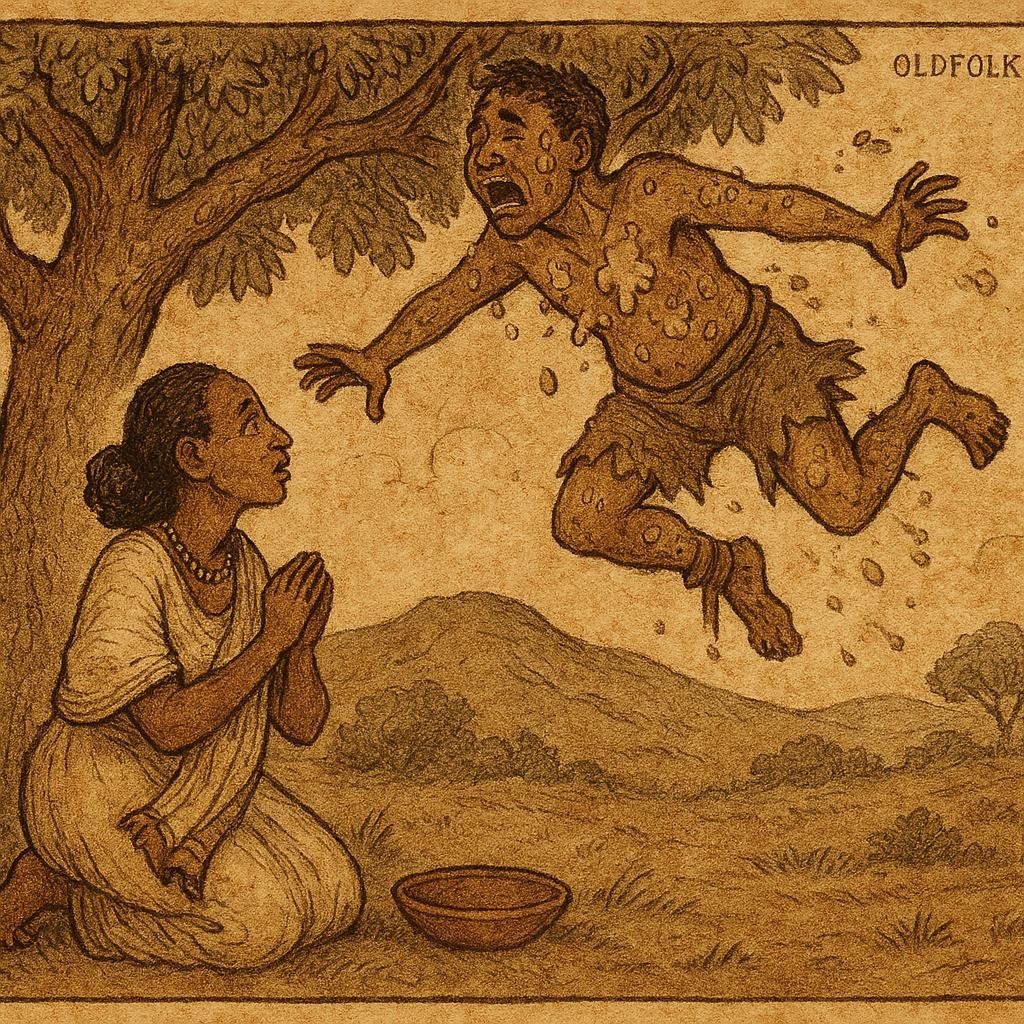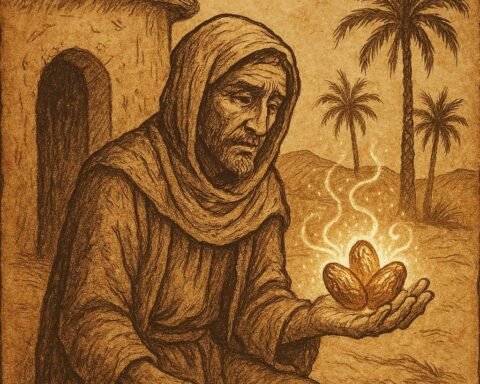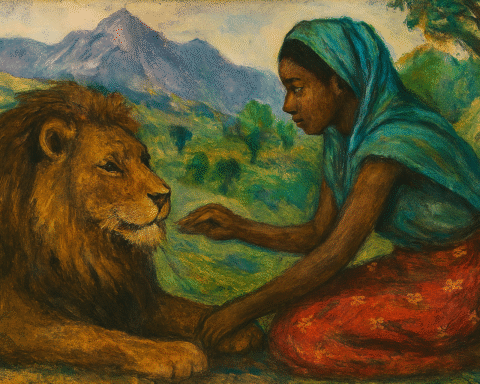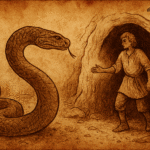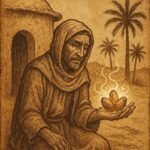In the highlands of Ethiopia, where the terraced fields meet the horizon and the air carries the fragrance of roasted grain and burning wood, there once lived a woman with a husband whose greed knew no measure. He was not poor, nor was he in need, but his appetite was boundless. His wife, patient and dutiful, rose each morning to cook for him. She prepared thick stews, soft injera, and fragrant broths, filling the clay bowl that she carried daily to his farm.
Yet every time she arrived, her husband’s face darkened with anger. She would open the bowl to present his food, only to find it perfectly clean, every drop gone, as if it had never been filled.
“What mockery is this?” he thundered. “You dare bring me an empty bowl after a long day’s work?”
No matter how she protested, no matter how she swore that she had carried the food with care, he would not believe her. His rage grew so fierce that he struck her, cursing her for her “laziness.” At last, he warned her, “If you come again with an empty bowl, I will kill you.”
The poor woman wept. She had no answer to the mystery. She cooked, she carried, and still the bowl was always bare upon arrival. It seemed as though some unseen hand stole the meal on the way to the farm.
READ THIS: The Cattle Carried Away by the Wind
One day, as she sat despairing, an old woman passed by. This elder, stooped yet sharp-eyed, listened patiently to the wife’s tale. When the wife finished, the old woman nodded knowingly.
“My daughter,” she said, “tomorrow, cook the sweetest food you can. But when you walk to the farm, stop beneath the great tree that leans over the path. Crawl on your hands and knees beneath its branches before you continue. Do this, and the truth will be revealed.”
The wife agreed. At dawn she rose and worked over the fire, preparing a meal so fragrant it perfumed the whole compound. She poured the stew into the clay bowl, wrapped it with cloth, and set off along the familiar road. When she reached the great tree, she did as the old woman had instructed, lowering herself to the earth and crawling beneath it.
As she emerged on the other side, there was a sudden cracking sound from above. With a heavy thud, a man fell from the tree and landed in the dust before her. It was her husband. His mouth was smeared with sauce, and his beard glistened with oil from the stolen food.
The truth burst open like a gourd dropped from the sky. It was he who had been lurking in the tree each day, climbing down to eat her cooking before she reached the farm, then rushing ahead to accuse her of neglect. His greed had driven him to trickery, and his anger had blinded him to his own shame.
The woman, no longer afraid, set the bowl before him and turned away. She had carried her burden long enough.
Overcome with humiliation, the husband could not bear the weight of his disgrace. His skin prickled, his hands twisted, and his face stretched into a muzzle. His body shrank and grew coarse with hair until he was no longer a man at all. In the place where he had stood crouched a monkey, wide-eyed and trembling. Without a word, he leapt into the branches and vanished into the forest.
And so, the greedy husband lived out his days among the monkeys, forever reminded of the hunger and deceit that had transformed him.
Moral of the Story
Greed consumes not only the body but the soul. Deception and selfishness bring only shame, while honesty and patience expose the truth.
Knowledge Check
Q1: Who is the main character in The Greedy Husband Ethiopian folktale?
A greedy man whose deceit led to his downfall.
Q2: What mystery troubled the wife each day?
Her husband’s food bowl was always empty before she reached the farm.
Q3: Who revealed the truth to the wife?
An old wise woman who advised her to crawl under the tree.
Q4: What was the husband secretly doing?
He hid in a tree along the path, stole the food, and pretended his wife brought nothing.
Q5: What transformation punished his greed?
He turned into a monkey, a symbol of shame and deceit.
Q6: What is the central lesson of the folktale?
Greed and dishonesty lead to disgrace, while truth always comes to light.
Source: Ethiopian folktale
